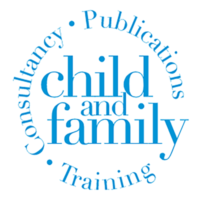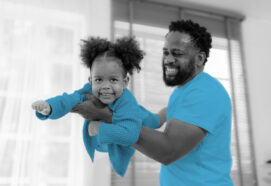The Association for Child and Adolescent Mental Health, in collaboration with Child and Family Training (C&FT) and Improved Futures (IF) present a series of Briefing Seminars on ‘Dealing with distress, restoring well-being, and promoting resilience of Looked After Children and young people who have suffered extensive trauma’.
Our goal is to help Looked After Services, Social Workers, carers, parents, education professionals, and those interested in trauma to develop a whole system ‘trans-diagnostic’ approach, and practice skills to address the often complex needs of Adopted, Looked After Children and young people.
Resources for delegates
Modular multifocal interventions (use the password in your confirmation email)
Training residential workers (use the password in your confirmation email)
Training NQ Social Workers (use the password in your confirmation email)
FFF adoption (use the password in your confirmation email)
CBE paper (use the password in your confirmation email)
Draper & Marcellino – whole framework (use the password in your confirmation email)
Location dislocation and relocation (use the password in your confirmation email)
DST paper (use the password in your confirmation email)
Seminar 1: Establishing the Needs of Looked After Children and The 4D Model Dealing with Distress (Mansell, Urmson and Mansell 2020) (Wednesday 8 March)
Session one slides
Seminar 2: Fast Feet Forward – a protocol to address Complex Trauma of Looked After children (Wednesday 15 March)
Session two slides
Session 3: Developing skills to address Anxiety and Threat, Low Mood and Disruptive Behaviour
Session 4: Addressing sexual abuse, and Creating a Trauma Narrative to cope with Traumatic Experiences and Adverse Life Experiences, and training approaches (Wednesday 29 March)
Slides – Trauma and Looked After Children Session 4
Slides – References
Slides – Flyer
Slides – Work sheets
About the sessions
Establishing the Needs of Looked After Children and The 4D Model Dealing with Distress Mansell, Urmson and Mansell 2020) (Wednesday 8 March)
This is a ‘transdiagnostic’ approach, and core skill to address a wide range of ‘distress’ – extreme anxiety, anxiety, sorrow or pain associated with the overlapping mental health responses to traumatic experiences, it includes modules to Distract and Dilute distress, to Discover and Develop coping strategies.
Key learning points
- Learn how traumatic responses are associated overlapping mental health responses, and what you can do to help
- Gain an awareness of the impact of hearing, witnessing and sharing experiences, and utilise techniques to share in reflective groups
- See how relevant information needs to be gathered from referring agencies, to establish a profile of needs. Learn what needs to be done by who, and when, in order to help young people.
- This session includes ‘Dealing with Distress’ and this is an essential skill, for all children and young people whereby you establish a supportive environment of care.
Fast Feet Forward – A protocol for complex trauma in adoption and looked after children (Wednesday 15 March)
The approach is based on a group protocol based in a non-clinical setting. It includes components of Distress screening, a protocol for Sleep and Nutrition, beginning to establish a Hopeful Future, and the Fast Foot Forward protocol based on the finding that Sport and aerobic exercise is positively related to improving emotional well-being, improving mood symptoms, assertiveness, self-control, physical ability, self-esteem, physical appearance self-esteem and peer self-esteem.
Key learning points
- Learn about how the Fast Feet Forward programme it is based on an understanding of complex trauma and its effect, and how sport and aerobic exercise is positively related to improving emotional well-being
- ‘Hot spots’ are trauma responses and children with complex trauma can have many, discover how Fast Feet Forward can help combat this
- See how group experience reduces isolation, how activities increase bodily awareness, and reduce tension. See how this helps individuals remain in the present, not living in the past, reducing anxiety, fear, worry & shame.
Developing skills to address Anxiety and Threat, Low Mood and Disruptive Behaviour (Wednesday 22 March)
Looked after children and young people often present with persistent sleeping difficulties are in a highly anxious state, have phases of overlapping low mood and disruptive behaviour. Modules from the HfCF guides on Addressing Emotional and Traumatic Responses, Addressing Disruptive behaviour and Positive Parenting can be integrated to meet complex mental health responses.
Key learning points
- Understanding the distinction between true and false alarms which give rise to anxiety
- Identify the process of threat triggering of anxiety, and avoidance, and the way anxious thoughts are built up
- Discover how the ‘Fear Ladder’ controlling anxiety, and ‘Feelings Thermometer’ can help young people
- Explore interventions for difficult situations that can be upsetting and made you feel low
- See how interventions balance of helping young people deal with anger and irritability
- Learn how to use positive parenting approaches to establish a new identity and leave behind the feelings thoughts and behaviour associated with ‘past lives’.
Addressing sexual abuse, and Creating a Trauma Narrative to cope with Traumatic Experiences and Adverse Life Experiences, and training approaches (Wednesday 29 March)
Traumatic memories come into people’s minds uninvited often as vivid, flashbacks as if the event is happening again. Sleep may be invaded with nightmares and bad dreams triggered by sights, smells of places which remind of the original event. Lives feel fore-shortened, on edge, angry, irritable, and the young person cannot settle asleep. Developing a full narrative – a ‘hardback’ version of the journeys and their lives can demonstrate the range, extensiveness, and depth of the traumatic experiences and the establishment of current safe realities rather than living in the past.
Key learning points
- Gradual Exposure – How to work through the scary and upsetting things. You don’t have to talk about it at once, but the more you talk about it the sooner the whole you can cope
- Utilising ways of coping – Discover how to use the distress scale to keep a check on feelings.
- Constructing their experiences – Some young people construct a detailed account of their journeys, and their lives, through drawings, art works, videos with commentaries. Learn how to slowly unwrapped these memories and experiences.
About the speakers

Arnon is a Child and Family Psychiatrist, and Director of Child and Family Training. He trained as a Psycho-Analyst and Family Therapist and worked at the Great Ormond Street Children’s Hospital and the Tavistock Clinic. He is a Visiting Professor at the Royal Holloway University of London. At Great Ormond Street he shared responsibility for Child Protection at the Hospital, and helped to initiate a number of services including the first Sexual Abuse Assessment and Treatment Service in the UK, and a Child Care Consultation Service. Research on Family Assessment formed the basis of the tools commissioned by the Department of Health to support the Assessment Framework. Child and Family Training was established to provide training and further developments
Carol Jolliffe has worked for Child and Family Training since 2000 and is accredited as a trainer for the range of assessment and intervention tools. She has trained for Child and Family Training in a range of social care and health settings in UK, Ireland, Egypt, Cyprus, Sweden, Germany and Hong Kong. She is currently involved in developing their family work focused training courses. She has worked with children and families in social work and children’s mental health services since 1979. She qualified as a social worker in 1986 and has worked as a practitioner and manager in children’s residential and community settings, including a duty and assessment service and a national therapeutic residential resource. Carol additionally trained as a family therapist (and is also a qualified systemic supervisor) as part of her move to children’s mental health services. She now works as a consultant systemic psychotherapist and as clinical lead for family therapy in an NHS Trust. She has a private clinical practice, offering family therapy and assessments for prospective adopters and foster carers. She teaches on family therapy and clinical psychology training courses for the Tavistock Centre and Canterbury Christchurch University.
River Draper

Dr. Ana Draper, Clinical lead and consultant systemic psychotherapist at The Tavistock and Portman NHS Foundation Trust. A ‘Clinically excellent’ published NHS consultant whose research and evidence-based practice has provided a gold standard, been policy changing and had a profound effect on the understanding of childhood bereavement. Ana possesses the rare ability to effectively research, strategise, advise and present her erudite findings to the government, yet twin this macro vision and input with a friendly approach to also implement at grass roots level through the provision of simplified practical layman resources and empathetic, individual personal care. She is looking to utilise her in-depth knowledge and well-honed skills to even greater effect.

Elisa Marcellino is a Clinical, Counselling and Health Psychologist. She has been working for many years with people with multiple traumas and adverse life experiences. This includes working with unaccompanied minors, adopted children, young offenders, people living with dementia and people with learning disabilities. She works in the National Health System in the UK and she is Clinical Director at Improved Futures where she is responsible for the training courses delivered to local authorities, charities, organisations and NHS trusts in the UK and abroad. Elisa is Visiting Lecturer at the Tavistock Clinic for Masters in Refugee Care Course. Her work has been published and presented internationally. Elisa is co-author of Fast Feet Forward (FFF) and Continuing Bonds Enquiry (CBE). She is currently co-writing a book for the Systemic Thinking and Practice series of Routledge.
This event is run in partnership with Child and Family Training UK (C and FT).
Booking
To book simply click the button at the top of the page, or this link, and fill in the details. ACAMH Members should sign in first to ensure that they get their discount. If you are not an ACAMH Member now is a great time to join and make a saving on this event. Take a look at the different levels of membership on offer.



